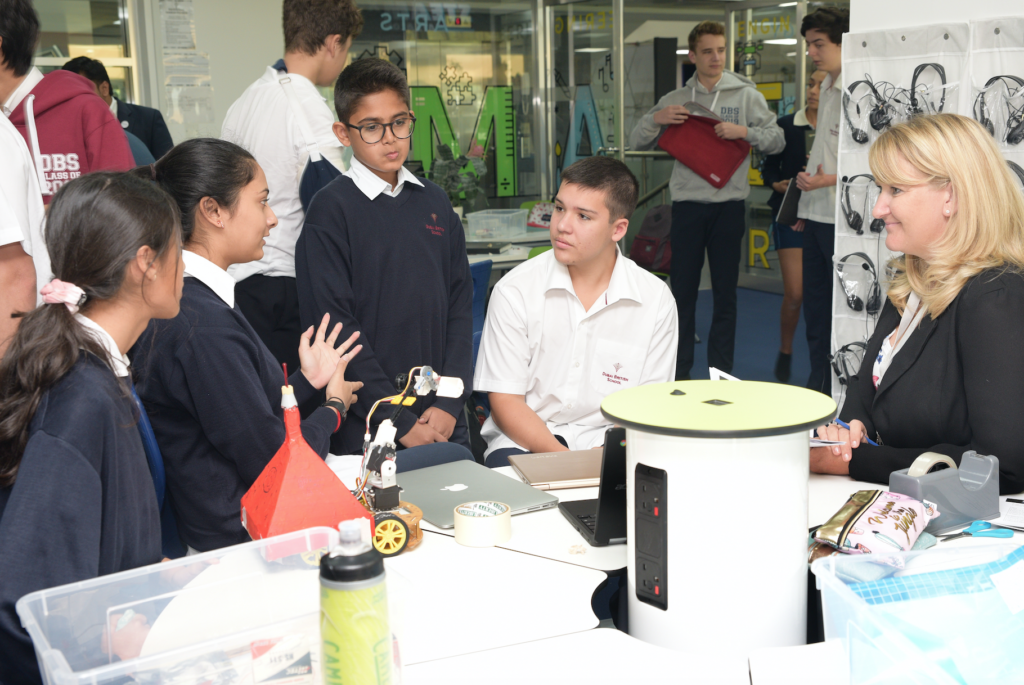Kalebr: Growing up fast in the age of technology

Hold on, the alphabet ends after Z. What comes next? The answer is emerging. Futurist, demographer and TEDx speaker Mark McCrindle is leading the campaign to call anyone born after 2010 a part of “Generation Alpha”. This generation is growing up in a world where every aspect of their communication, entertainment, social activities, private and school lives is entwined with technology. Members of this generation are the so-called “digital natives,” who have grown up with information technology and social media, and to whom the smartphone feels natural and easily accessible. By contrast, their parents and grandparents, even if they may possess and use the same technology, will never have the same relationship with it. These massive technological changes, among others, make this generation the most transformative ever.
So, what specifically sets apart this distinct generation? Are young people just more interested in modern technology and thus, more motivated to learn it? Or are there more profound differences in the way younger generations perceive the world?
The influences of major events, cultural norms, social moves, and even politics can be seen in the differences amongst Baby Boomers, the Silent Generation, and Xennials, to name but a few. And of course, the direct impact of technology. The question of technology’s role – and especially when it comes to media technology’s – role in our experiences has fascinated philosophers, sociologists and media theorists since the first half of the 20th century.
The next generation is arguably the most ambitious and exciting generation since the baby boomers. Brought about by the social connectivity, they feel well positioned to explore the status quo as a result of growing up within an era of unprecedented access to information and opportunities granted by modern technology. Consider this: the Industrial Revolution allowed individuals to be far more powerful; with the growth of literacy during this time, it meant an increase in individuals moving out of their hometowns, starting companies, and forming organisations. The information revolution has further empowered individuals by handing them the technology tools to compete against established organisations – it’s bloggers vs. newspapers, YouTube directors vs. studios, app-makers vs. entire industries.
Technology is dynamic, it evolves constantly. It’s also having a huge impact on how the next generation of digital natives interact and build relationships. There is a certain sense that for the next generation, things are constantly within reach. After all, they’ve grown up with instant news updates from across the globe, the ability to video chat in real-time with friends and family from anywhere, and a world that ultimately feels much smaller because of the internet. Further, this generation is not a group of selfie-obsessed digital conformists. Digital is not shaping their world. They are shaping it. They manage it and mould it, developing strategies to get the most out of every platform while minimising the risk of negative feedback. They are the ones in the digital driving seat, they call the shots. As such, they have become adept at fragmenting their identities, cultivating multiple digital selves depending on the platforms they use and the results they wish to elicit from their posts, photos and other content shared.
This is also a generation of digital strategists and content editors (even if they don’t know it), who are challenging perceived notions. While they may be actively seeking experiences online, they have learned to be extremely calculated in how they present their personal brand, creating strict strategies around how, when and where they are seen.
It’s not just that this generation is tech-savvy; technology is omnipresent in today’s world, which also dramatically alters the trajectory of commerce and growth. With technology playing such an immense role in nearly every industry, the next generation is learning the right skills, such as being strategists, multi-tasking and relying on their creativity and imagination, for their future career opportunities. At the same time, technology is making educational opportunities more available than ever before. Today’s youth are often planning careers predicated entirely on the innovations of the past few decades. Compared with the manual labour roles of the mid-century as well as other professional, non-digital careers, this is definitely a visible shift in the world of work which welcomes new ideas, remote workers, flexible roles and a constant shift in the narrative.
Another outcome of growing up in the digital age is the drastic difference in the ways in which everyday things are done. For instance, technology has changed the way we meet people, the ways in which we fall in love, search for jobs, manage our finances, seek out new experiences, build and control objects through artificial intelligence, and so much more. Is there an aspect of modern life that has not been affected by technology? Ultimately, it’s important to remember that the major difference in all of these areas has to do with efficiency. Technology has created faster, more efficient ways to do nearly everything.
Technology adapts and alters at an incredible rate, and the next generation has been there for all these permutations. This generation will never know a world without the efficiency and ubiquity of technology, and this changes how people will live and work in the future. From birth, this generation has a path which will diverge greatly and more rapidly from those of the older generations, presenting a new world full of endless potential.
For more information about Kalebr’s world-class education programs visit www.kalebr.com




